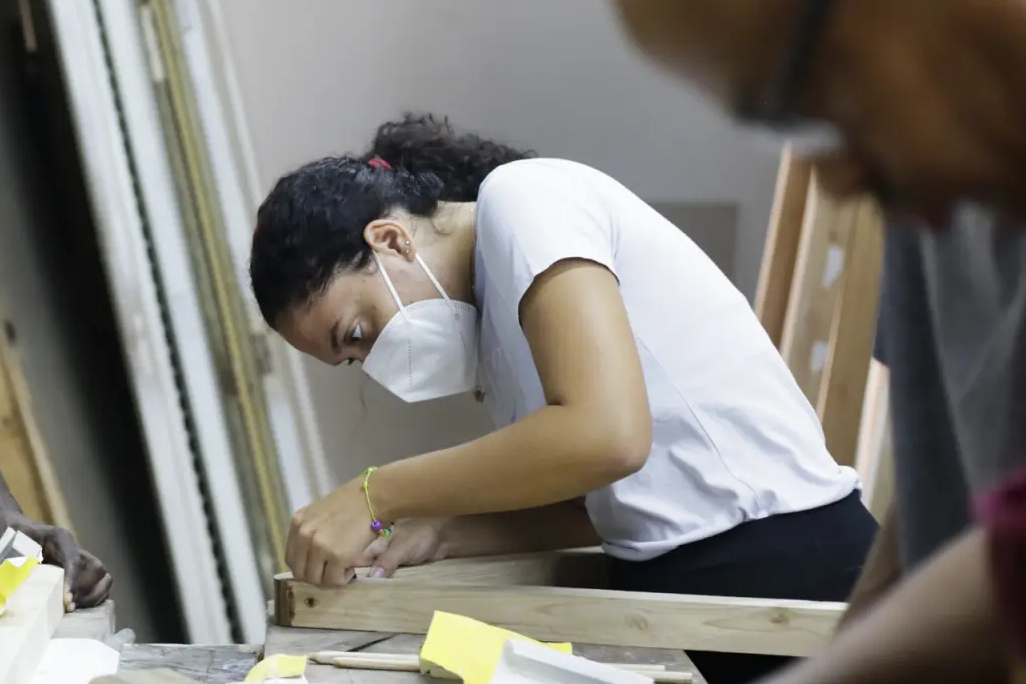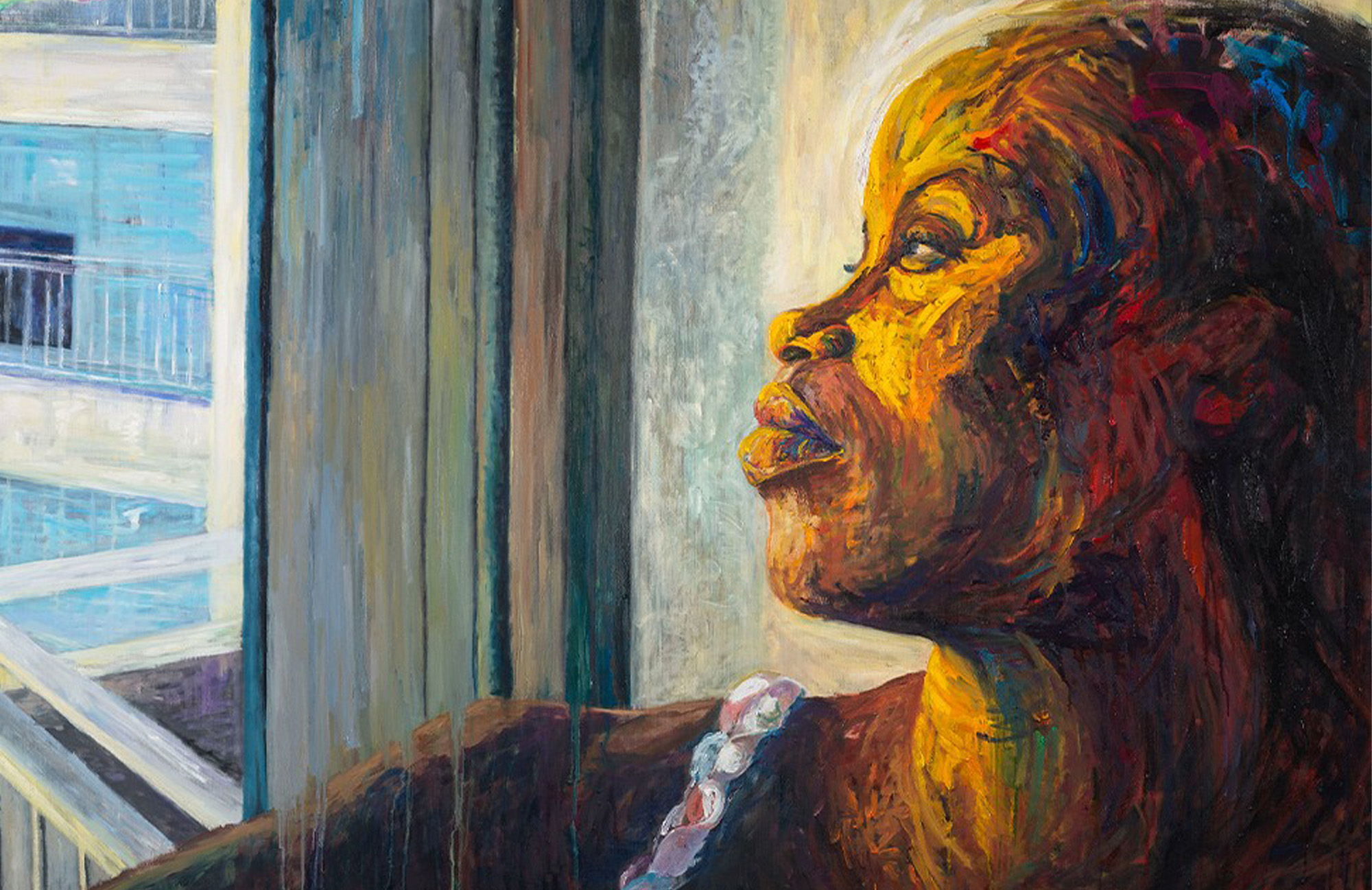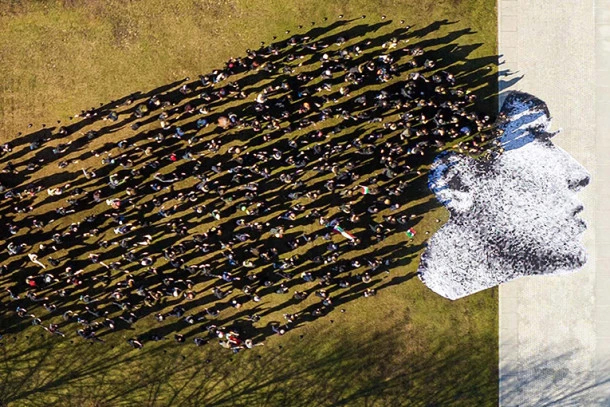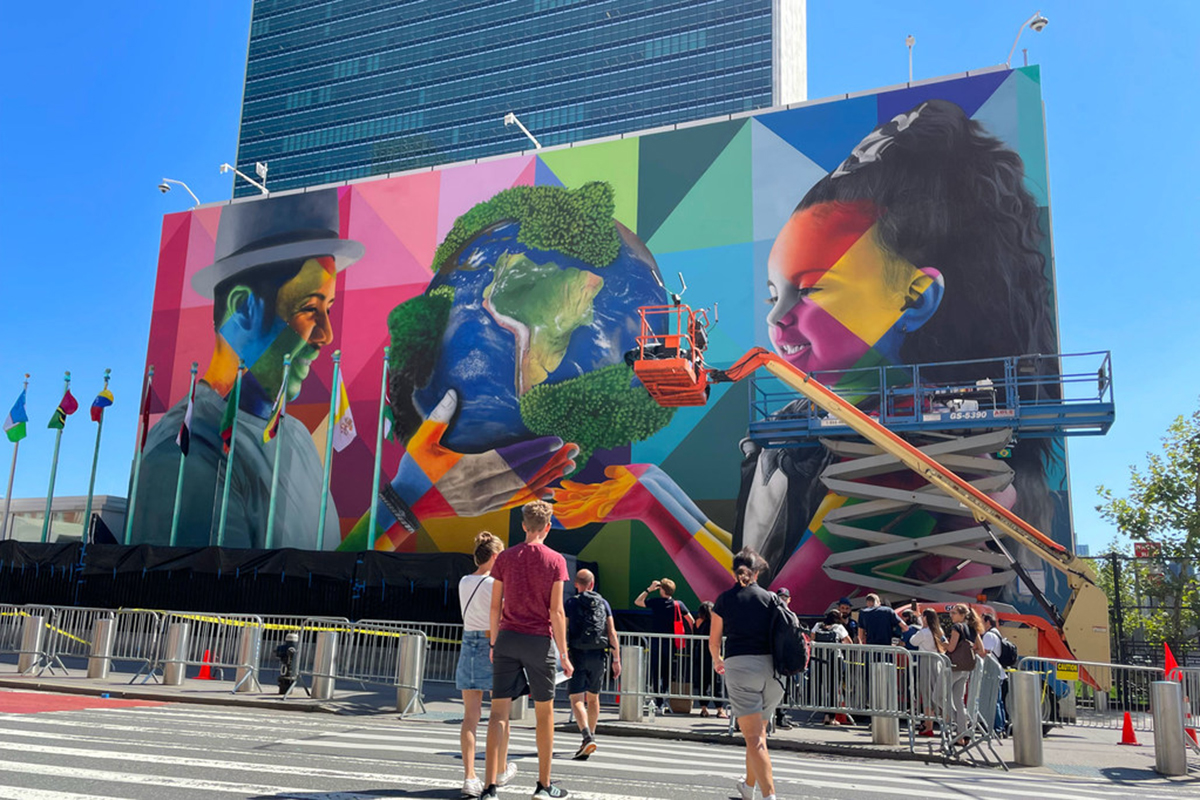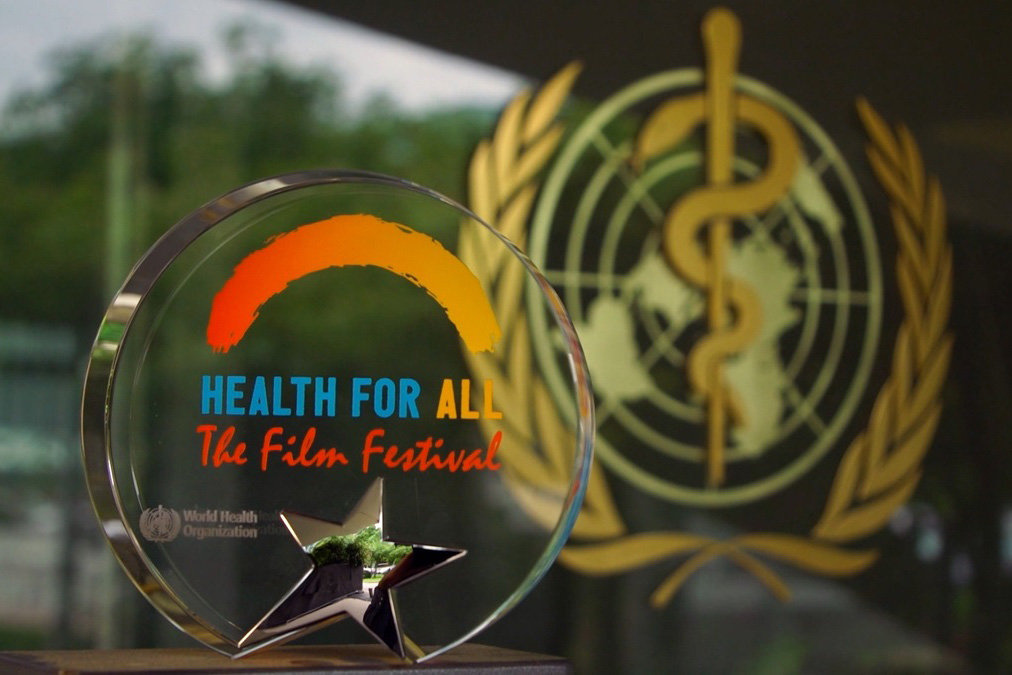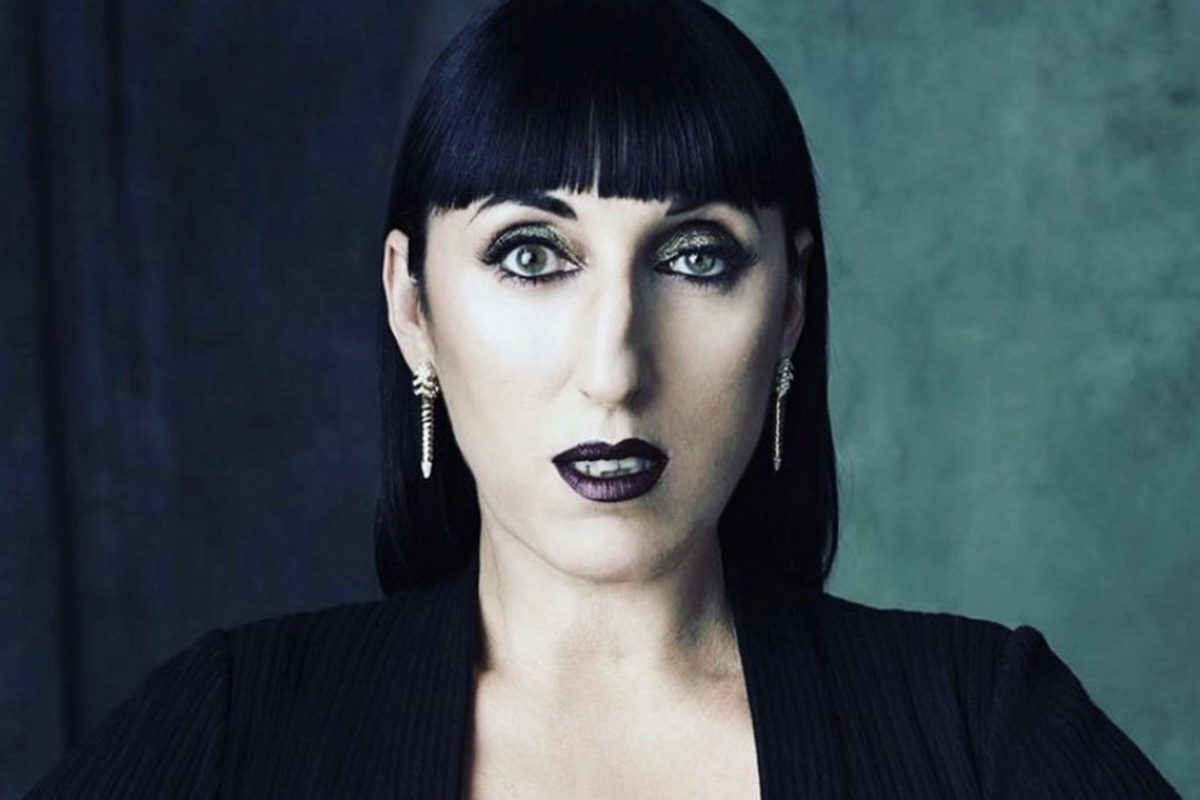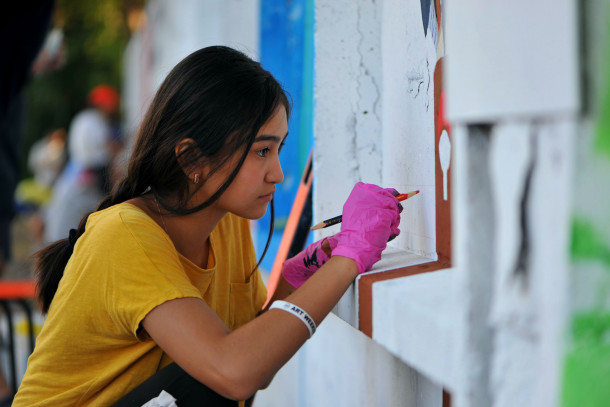Through minimalist ceramics shaped by memory and displacement, Crimean Tatar artist Elvira Demerdzhi creates moments of calm and cultural continuity amid Kyiv’s ongoing war.
Art
The United Nations, now celebrating its 80th anniversary, touches our daily lives everywhere, from peace and security to human rights and development, showing how global cooperation benefits us all. The exhibition features over 200 stories from 193 countries, highlighting the UN’s impact and is showcased both at UN Headquarters in New York and around the world.
Through powerful survivor testimonies and public art, IOM Moldova brings visibility to trafficking victims and strengthens national response efforts.
Deborah Papannah, a 27-year-old visual arts student, is pursuing a career in restoration to preserve her country's colonial buildings and artifacts, empowered by training from UNESCO’s Transcultura programme.
The "Stories of Us" sculpture exhibition at the United Nations features five "talking drums" celebrating resistance, unity, and Afro-descendant communities' journey from roots to emancipation.
The 2024 International Contest for Minority Artists highlights the vital role of minority artists and human rights defenders in promoting understanding and empathy through creativity. This year’s awards honored five winners: Bianca Broxton (USA), Joel Pérez Hernández (Mexico), Francis Estrada (Philippines), Laowu Kuang (China), and youth laureate Jayatu Chakma (Bangladesh), with honorable mentions for André Fernandes (Brazil), Maganda Shakul (Uganda), and Chuu Wai (Myanmar). Organized in partnership with several civil society organizations and the City of Geneva, the contest's theme, Memory in the Present, focuses on the artistic exploration of memory and memorialization by minority artists worldwide.
Humans have been producing textiles through weaving for thousands of years. Yarns or threads are carefully interlaced to create both simple and intricate fabrics. Many rural communities depend on weaving for everyday items such as clothing and household goods, and it also serves as a vital source of income for many people. Let's explore the art of weaving in Vietnam, Tajikistan, Fiji, and Guatemala.
The UN Human Rights Office recently announced the winners of the Second Edition of the International Art Contest for Minority Artists. The four winners of this year’s competition were Babatunde “Tribe” Akande, Bianca Batlle Nguema, Mehdi Rajabian and Karhoum Dembele. The theme of the contest was for minority artists to expose, explore, and address matters relating to intersectionality and compounded forms of discrimination through their artwork. “Within a minute of looking at each piece of art submitted this year, the reasons to continue the fight for the realization of minority rights is so obvious, just in front of our eyes,” said Alexandra Xanthaki, UN Special Rapporteur in the field of cultural rights and a judge for the contest.
The new UNESCO publication Defending Creative Voices recommends that the international community develop tailored assistance to protect and promote artistic freedom in emergency context.
There may be no universal understanding of creativity. The concept of creativity ranges from artistic expression to problem-solving and can be used in the context of economic, social and sustainable development. The creative economy too has no single definition. It is an evolving concept which builds on the interplay between human creativity and ideas and intellectual property, knowledge and technology. On World Creativity and Innovation Day (21 April), the world is invited to embrace the idea that creativity and innovation are essential for harnessing the economic potential of nations.
Art nurtures creativity, innovation and cultural diversity and plays an important role in sharing knowledge and encouraging curiosity and dialogue. Therefore, UNESCO supports environments where artists and artistic freedom are promoted and protected. In this way, furthering the development of art also furthers our means to achieve a free and peaceful world. World Art Day (15 April) is a reminder that art can unite and connect us even in the most difficult of circumstances. Art continues to have the power to bring people together, to inspire, heal and share.
WHO calls for short films for the 4th edition of the Health for All Film Festival, recruiting year after year a new generation of film and video innovators to champion and promote health issues.
Known for her combativeness, generosity and commitment to equality, Rossy de Palma will contribute to disseminating and promoting UNESCO’s values and actions in favour of cultural diversity.
Many artists and cultural professionals face precarious employment conditions with short and unstable contracts that lack social protection. But art is essential to society and the world is richer for it. UNESCO advocates for artists and cultural professionals around the world.
The war in Ukraine has led to the sudden suspension of usual cultural life in Ukraine: Most artists lost their revenue stream, while art collections are threatened. This situation seriously impacts cultural diversity. UNESCO will provide financial support to Ukrainian artists to support the continuation of artistic creation and access to cultural life, under a pilot programme launched by the Organization in partnership with the Ukrainian NGO Museum of Contemporary Art (MOCA).



